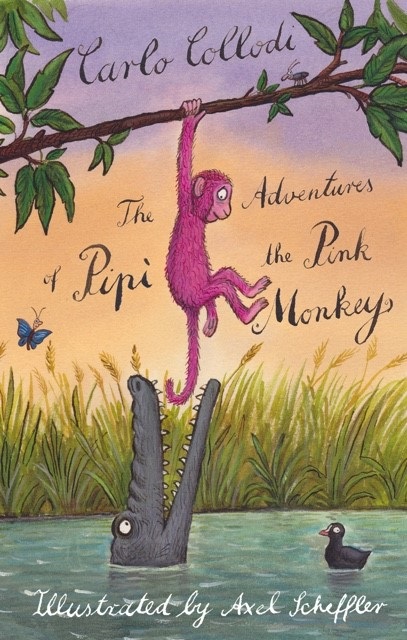![]() By Francesca Montero
By Francesca Montero
November 9 2019, 10.45
Follow @SW_Londoner
A Richmond publisher will produce a new translation of Italian children’s classic Pinocchio with illustrations by Gruffalo illustrator Axel Scheffler.
Alessandro Gallenzi, founder of award-winning independent publishing house, Alma Books in Castle Yard, will translate the beloved children’s work, punctuated by drawings in Scheffler’s distinctive style.
This month marks the 193rd anniversary of Pinocchio author Carlo Collodi’s birth, and the ongoing popularity of the tale of a naughty wooden puppet, who dreams of becoming a boy, shows no sign of abating.
Alessandro Gallenzi, publisher and managing director of Alma Books said: “Pinocchio is Collodi’s masterpiece. The reason the book became such a great classic is that his language is remarkably lively, it’s full of idioms, it’s full of Grammatik Italian.
“I think that’s the novelty of Pinocchio. We’re looking at publishing in the next couple of years and Axel has promised to do the drawings.”
The original, published in 1883, is far darker than the familiar Disney film; Collodi originally wrote The Adventures of Pinocchio in weekly episodes for il Giornale per i Bambini, a children’s newspaper, created to encourage Italian children to read the same standardised Italian at home they were taught at school.
The children’s newspaper reflected the aims of the new Italian state; promoting a single language rather than conversing in the numerous regional dialects spoken across Italy at the time in its efforts to ‘make’ Italians after the country’s unification in 1860.
Alessandro said: “There’s always this didactical element in Pinocchio, he wants to show if you are a naughty boy, you are going to be punished. Collodi keeps killing Pinocchio off at the end of episodes, only to bring him back to life like the Marvel superheroes.”
This new collaboration marks the second time Alessandro and Axel have worked together; in 2016 they collaborated on a lesser known Collodi work, The Adventures of Pipi the Pink Monkey.
Alessandro said: “I came across Pipi the Pink Monkey, written just after Pinocchio, in the British Library and I was intrigued. I read it in Italian and I felt the beginning was brilliant, and then, he sort of peters out.
“The story was there, but he didn’t have the patience to complete it and bring the various strands of the story together, to develop the characters.
“So, I thought rather than simply translate it into English, which had never been done before, I would expand the story a bit and try to sort it out as an editor, similar to what I do with contemporary books.
“I would try to fill the holes, develop the characters a bit further and try and bring the story to its natural conclusion.”

Throughout the book, Pipi is brought vividly to life by the brushstrokes of Scheffler.
The Adventures of Pipi the Pink Monkey, published in the Alma Junior imprint, has been translated into more than ten languages and proved popular in Germany, Spain and Portugal.
Alessandro said: “Collodi wanted to be remembered for his serious stuff, but he got hundreds of letters from children, urging him to write more for them.
“They couldn’t get enough of his stories and it was his publisher, who forced him to continue this story, that he had abandoned at some point, because he was not motivated to continue.”
The Adventures of Pipi the Pink Monkey showcases Collodi’s subversive, playful style and Alessandro took care when translating the text to maintain the essence of the original, even if some of the young monkey’s activities would raise eyebrows among children’s publishers today.
“He’s really, really naughty to be honest, it’s like with Pipi smoking! We were developing our children’s list at the time and our editors said: ‘You can’t have him smoking!’
“But you know, it’s in the original and I’m sure that children, in those days, would try and emulate the adults, playing with their pipes and that’s why there is the pipe, so I thought I had to be faithful to the original.
“You can’t shy away from those themes, although sometimes it’s a little too didactical, and I tried to maintain a nice balance.”
Alma Books was set up by Alessandro and his wife, Elisabetta Minervini in 2005.
In 2013 it was awarded the Premio Nazionale per la Traduzione per i Beni e le Attività Culturali by the Italian Ministerio for its contribution to the promotion of Italian culture abroad, the first time in history that a British publisher has won this prestigious prize.
Alessandro said: “It’s a huge deal, I can tell you, when I went to Rome to pick up the prize, I was very honoured.”
